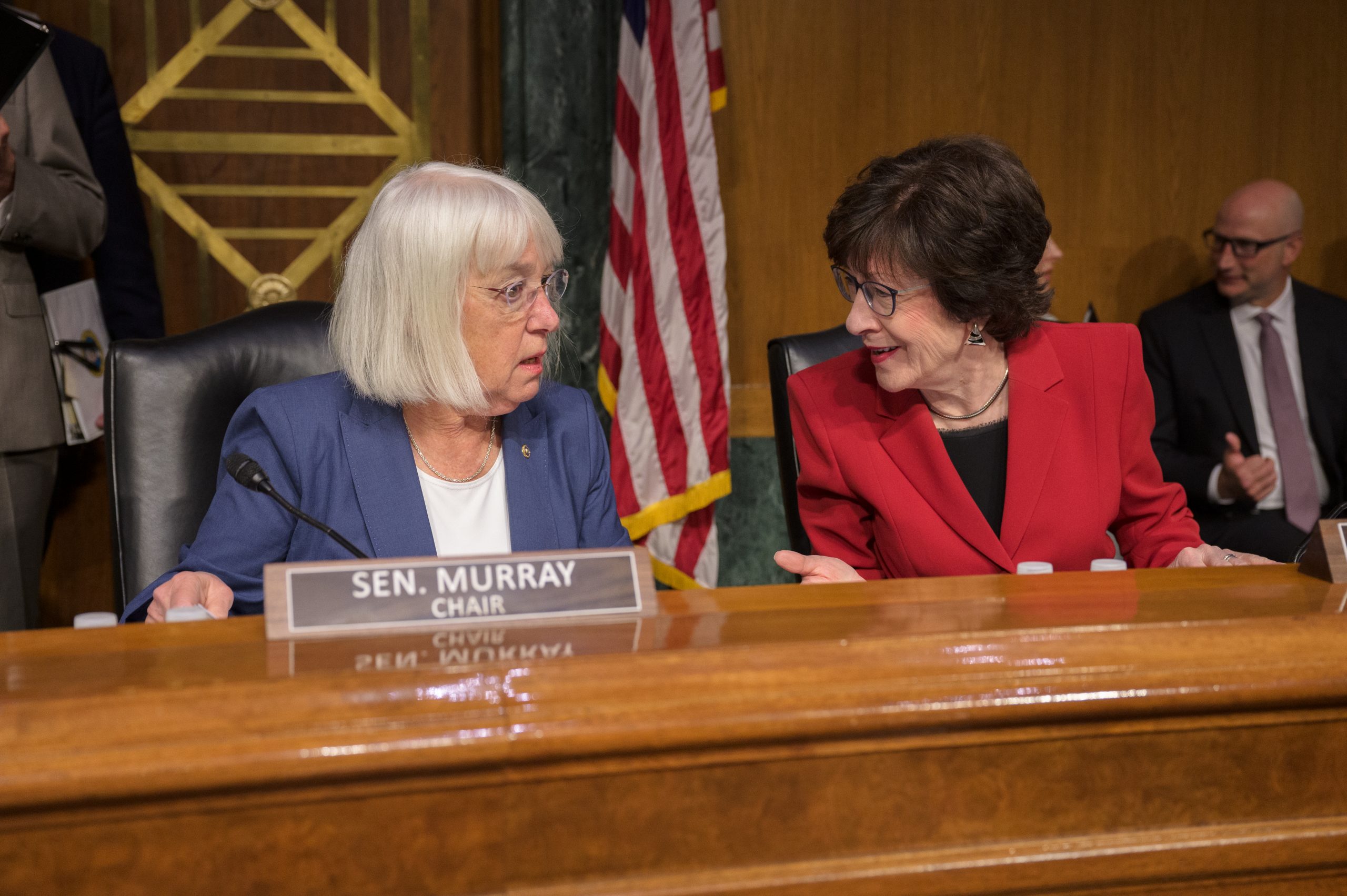***WATCH: Senator Murray’s questioning of Secretary Deb Haaland***
Washington, D.C. — Today—at a Senate Appropriations Interior, Environment, and Related Agencies subcommittee hearing on the fiscal year 2025 budget request for the Department of the Interior—U.S. Senator Patty Murray (D-WA), Chair of the Senate Appropriations Committee, discussed the importance of investing in the Department’s critical efforts despite tough funding constraints—and of upholding Tribal treaties.
In opening comments, Senator Murray stated:
“Thank you, Secretary Haaland for joining us today to talk about the resources that Interior needs to keep up its vital work.
“In my home state of Washington, our incredible forests, mountains, and waters give our families a great place to go outdoors and explore, we attract many visitors and bring in dollars from across the world, and it is central to our economy.
“The work we do to take care of them for now and for generations to come could not be more important. Everything from tackling the climate crisis and wildfires to protecting our priceless ecosystems and species—including salmon of course—and keeping our word to our Tribes, which should include ensuring certainty for Tribal sovereignty payments by moving them to the mandatory side of the ledger—which is something Chair Merkley and I are both focused on.
“And as we talk about our incredible public lands, I want to note that yesterday marks one year since the Hurricane Ridge Day Lodge at Olympic National Park in my home state of Washington burned down.
“This was an amazing, iconic structure, and ensuring that Hurricane Ridge gets rebuilt remains a top priority for me.
“Our public lands are not just a national treasure—they are truly a national necessity. I want to make sure that our FY25 bills really reflect that.
“FY24 was a tough year that forced a lot of difficult decisions, and the one percent increase in funding that is now provided for FY25 under the caps we are now living with is not enough to meet this moment—including for Interior.
“So, as members talk about how we might increase investments to better meet our defense needs—I will not let us ignore our needs here at home as well either. We have to remember our national strength is directly tied to having strong, vibrant, and resilient ecosystems, and our safety is directly related to our response to threats like wildfires—to just give a few examples!
“As I have said before, when it comes to considering additional resources, I am going to insist on parity for nondefense.”
Senator Murray asked Secretary Haaland how the Department is working to ensure adequate staffing levels at our national parks in the face of rising housing costs and tight budget constraints, noting that: “When we do not fully fund our programs, there are real, on-the-ground impacts, like at North Cascades National Park, where cuts have meant that the Park has had to cut back on staffing, Stehekin will offer fewer services, and the Golden West Visitor Center is going to remain closed this summer.”
In response, Secretary Haaland responded that staffing is a priority for the Department and a “constant issue across the National Park system,” and the Department is working to make progress going forward despite tough funding levels.
Senator Murray then asked about how Interior’s FY25 budget request will help with salmon recovery—noting that: “Salmon are absolutely essential for Tribes, and our environment and economy of the Pacific Northwest.”
Secretary Haaland responded in part:
“The 2025 budget includes $24 million in appropriated funding to support the Columbia River Basin salmon recovery efforts in reclamation and in the Fish and Wildlife Service. This includes funding in the Bureau of Reclamation for the Columbia and Snake River Salmon Recovery Project for studies, habitat restoration, and mitigation to address the impacts of reclamation water projects on anadromous fish. It also provides funding to evaluate the potential success of reintroducing those fish upstream of the Grand Coulee Dam. Funding in the Fish and Wildlife Service Partners for Fish and Wildlife Coastal Programs and Hatchery Operations will also support partnership salmon recovery and habitat restoration efforts.”
Senator Murray also spoke about offshore wind leasing and the Bureau of Ocean Energy Management’s consultation (BOEM) with Tribes who have fishing rights for pacific salmon, asking Secretary Haaland: “Can you tell me what BOEM is doing to not only consult with Treaty Tribes, but incorporate their feedback when making offshore wind leasing decisions?”
In response, Secretary Haaland said:
“Tribal consultation is one of our top priorities. I know that BOEM engages with indigenous communities on all of these issues. They have made that a specific part of their leadership team to ensure that there is a specific person that liaises with tribes. BOEM also works closely with tribal communities to support capacity building and meaningful engagement. We work with any of the wind companies that are working in the particular areas to create their own relationships with the Tribes. I know that there have been recently—the industry has worked to create agreements with Tribes specifically for some of the issues that they are concerned about. I can just tell you that I have traveled personally to meet with Tribes on offshore wind, on many occasions, both on the East and the West Coast, and we’re doing our best to ensure that they are part of the conversations and that their concerns get incorporated.”
###


